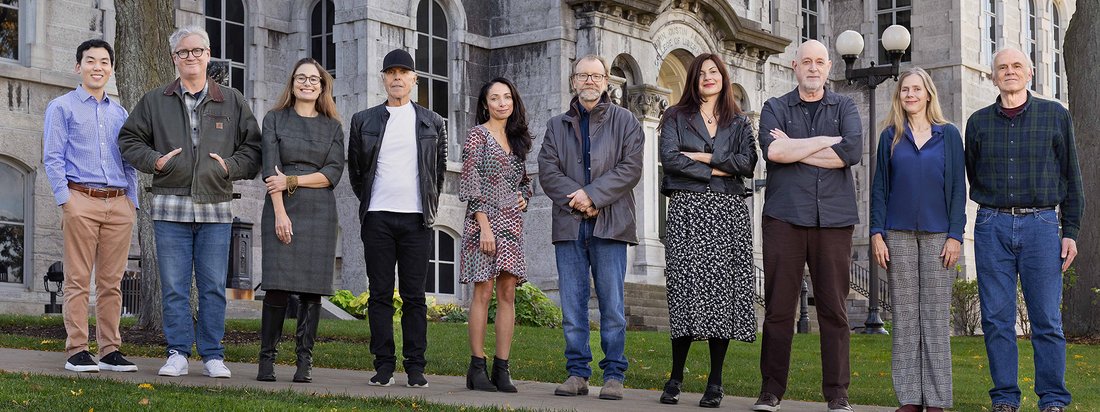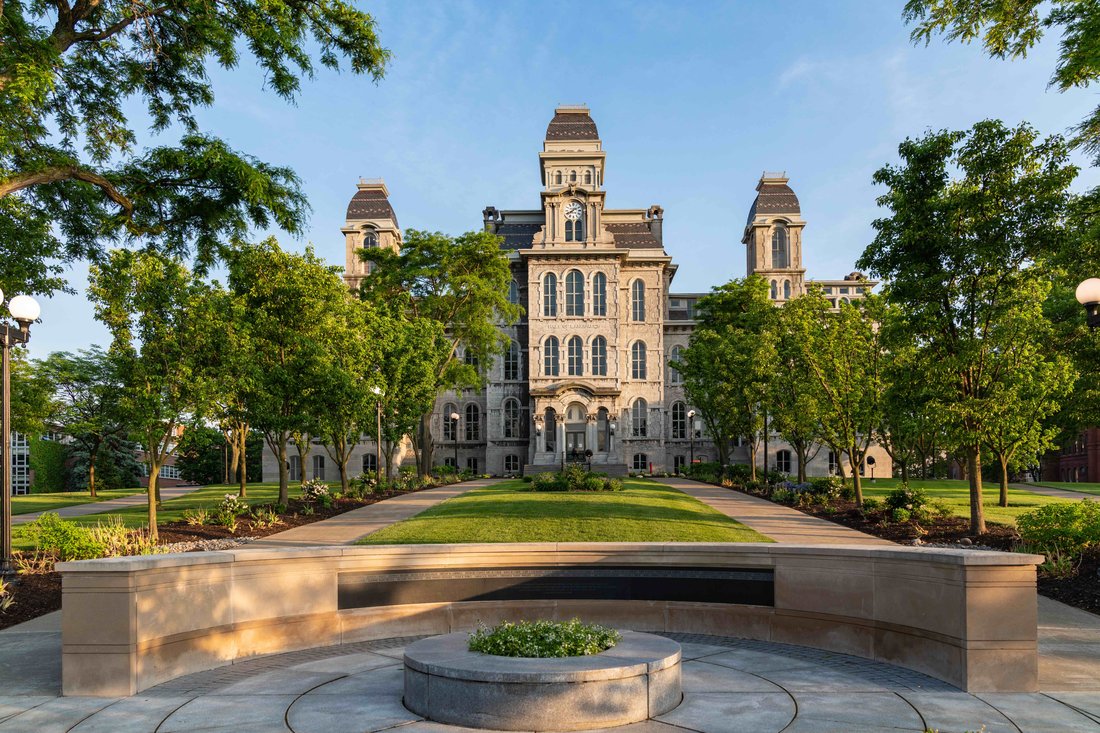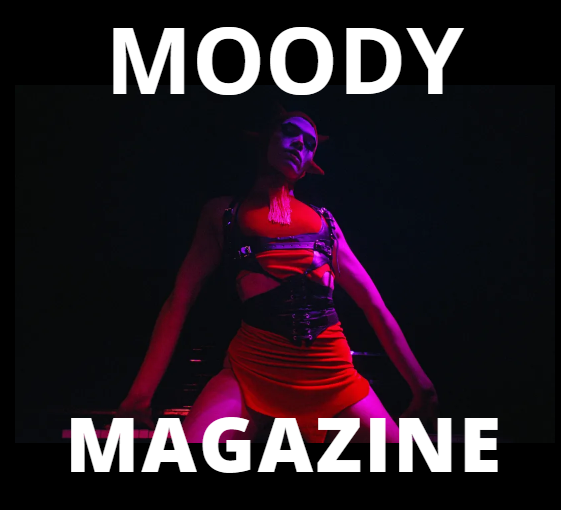By continuing to use this site, you agree to the use of cookies in accordance with our privacy policy .
- Academic Calendars
- Human Resources

Creative Writing B.A.

About this Program
- Participate in creative writing workshops in which you will generate your own work and in craft classes in which you will learn from the work of established writers.
- Pair your creative writing major with another major and expand your horizons by exploring multiple areas of interest, including journalism, history, information science, biology and applied mathematics.
- Learn from faculty-writers, graduate students enrolled in Syracuse’s renowned M.F.A. in creative writing program, and the well-established Raymond Carver Reading Series.
- Meet with talented faculty and visiting writers for guidance as you hone your own writing skills.
- Partake in one of literature’s highest goals: to give voice to a plurality of experiences and worldviews.
- Learn from assigned readings that represent various cultures, classes, modes of experience and cultures.
- Live in the Creative Writing Living Learning Community, where first-year students create friendships, network with faculty and established authors through public readings and dinners, and explore their passion for reading and writing poetry, fiction, graphic novels, creative nonfiction and any other type of writing.
Program Information
Degree Type
College or School
College of Arts and Sciences
Career Path
- Communications and Writing
Related Pages
- Official Program Requirements

The creative writing curriculum combines a grounding in literary study with a workshop-style focus on writing. Required classes include historical and contemporary literature classes, and creative writing workshops and craft classes in at least two genres. Students have the opportunity to join the Creative Writing Living Learning Community.
Student Learning Outcomes
- Read closely and analyze texts across historical periods and in various genres.
- Recognize and express the aesthetic qualities of literature and a knowledge of literary forms.
- Recognize and produce good writing and explain what literary aspects make it good.
- Demonstrate a knowledge of critical approaches and methods of interpretation.
- Improve your own work through self-conscious and analytical processes.
- Discuss peer work and other written texts in a thoughtful and constructive manner.
- Exhibit an awareness of how these skills are necessary for employment and graduate study in a wide range of fields.
Sample Courses
- Introduction to Creative Writing
- Reading Race and Ethnicity before 1900
- Interpretation of Poetry
- The Art of the Fairy Tale
- Introduction to Shakespeare
Extracurricular Opportunities
Raymond Carver Reading Series
Through the Raymond Carver Reading Series, attend readings by 12 to 14 prominent writers, followed by a Q&A session with the author. Recent authors include Sarah Shun-lien Bynum, Jamaal May, Monica Youn, Brandon Taylor, Valeria Luiselli, Ilya Kaminsky and Percival Everett.
Salt Hill is a nationally distributed literary journal publishing outstanding new fiction, poetry, creative nonfiction and art. For over a decade, the magazine has been edited and published by creative writing students. Students apply to intern at Salt Hill, and if chosen, gain valuable experience in running a literary magazine.
Student Publications
Through many student-run publications and campus organizations, hone your writing capabilities, meet peers with common interests and enjoy professional development and networking opportunities in writing and other related fields. Consider publications like the Perceptions magazine, The Daily Orange publication, Moody Magazine and The OutCrowd Magazine ; and student groups like Write Out and Nu Rho Poetic Society.

Related Programs
Digital humanities b.a..
Combine the traditional strengths of the humanities with attention to digital and information technology. Learn how digital technologies enable us to explore key questions in the humanities.
English and Textual Studies B.A.
Explore creative expression across a broad array of texts—novels, plays, film, digital media and more. Interpret motivations behind stories of yesterday and today and hone your skills as a writer.

Fine Arts B.A.
Customize your education with a unique concentration in the field of fine arts, drawing from both art history and music history courses, as well as studio art and music lessons or ensembles.
Linguistic Studies B.A.
Linguistics is the scientific study of the nature and use of language. Investigate its role in society, its structures and their cognitive representation, and language learning and teaching.
Music History and Cultures B.A.
The major in music history and cultures is designed for students who wish to study music in its historical, social and cultural contexts and in relation to other arts.
Writing and Rhetoric B.A.
As a writing and rhetoric major, you’ll explore the power of language across a range of genres.
Learn more about this program
Orange Alert
M.f.a. in creative writing.
The three-year M.F.A. program in Creative Writing gives promising fiction writers and poets an opportunity to practice their art with dedicated fellow writers. This close-knit community is committed to addressing the challenges of the literary process and concentrates on the craft and quality of literary writing. For nearly five decades, one of the prime strengths of our program has been the excellence of our students. The strictly limited enrollment, with six poets and six fiction writers admitted each year, guarantees that students work closely together with a faculty that includes nine faculty of national acclaim. Students are selected on the basis of academic credentials and writing samples. High admission standards and small class size ensure that students' writing receives thorough, consistent attention from faculty and fellow students. The faculty include Mona Awad, Chanelle Benz, Jonathan Dee, Brooks Haxton, Mary Karr (fall semester), Christopher Kennedy, George Saunders (fall semester), Bruce Smith and Dana Spiotta.
The Creative Writing Major in the English Department is designed for students who have an intense interest in developing their skills as writers and readers of creative nonfiction, fiction, and poetry. Students need to read widely and critically in order to write well and will be well served by a study of contemporary writing practices and the influences, precedents, and roots of literature. Students will be expected to read contemporary and historical works from a range of aesthetic credos that will provide a context to their development as artists. Students will begin to think as writers do and to understand the aesthetic and moral choices writers confront as they write. In addition, students will have ample opportunity for frequent and extensive writing and rewriting as they read, critique, and support each other’s work under the guidance of the distinguished faculty of the MFA in Creative Writing, a nationally ranked program.
Students who wish to major in Creative Writing should consult the Department of English Director of Undergraduate Studies to be assigned an appropriate advisor, who helps plan the course of study.
Some students majoring in Creative Writing may wish to apply for a dual enrollment with another school or college within the University, such as the School of Information Studies, College of Visual and Performing Arts, the S.I. Newhouse School of Public Communications, or the School of Education. For more information, see the web site at english.syr.edu.
For all Arts and Sciences|Maxwell students, successful completion of a bachelor’s degree in this major requires a minimum of 120 credits, 96 of which must be Arts and Sciences|Maxwell credits, completion of the Liberal Arts Core requirements, and the requirements for this major that are listed below.
Dual Enrollments:
Students dually enrolled in Newhouse* and Arts and Sciences|Maxwell will complete a minimum of 122 credits, with at least 90 credits in Arts and Sciences|Maxwell coursework and an Arts and Sciences|Maxwell major.
*Students dually enrolled in the College of Arts and Sciences|Maxwell as first year students must complete the Liberal Arts Core . Students who transfer to the dual program after their first year as singly enrolled students in the Newhouse School will satisfy general requirements for the dual degree program by completing the Newhouse Core Requirements.
Student learning outcomes include:
- Students will show the ability to read closely and analyze texts across historical periods and in various genres.
- Students will be able to recognize and express the aesthetic qualities of literature and a knowledge of literary forms.
- Students will be able to recognize and produce good writing and explain what literary aspects make it good.
- Students will demonstrate a knowledge of critical approaches and methods of interpretation.
- Students will improve their own work through self-conscious and analytical processes.
- They will be able to discuss peer work and other written texts in a thoughtful and constructive manner.
- Students will exhibit an awareness of how these skills are necessary for employment and graduate study in a wide range of fields.
Major Requirements
To qualify for a B.A. degree in Creative Writing, students complete a total of 30 credits of coursework. Students must attain a grade of C- or better in order to count a course toward their major credits. These credits include:
3 credit hours must be from one of the following 100-level courses.
- ENG 105 - Introduction to Creative Writing
- ENG 121 - Introduction to Shakespeare
- ENG 122 - Introduction to the Novel
- ENG 151 - Interpretation of Poetry
- ENG 153 - Interpretation of Fiction
- ENG 155 - Interpretation of Nonfiction
One workshop from the following choices:
- ENG 215 - Introductory Poetry Workshop
- ENG 216 - Introductory Literary Nonfiction Workshop
- ENG 217 - Introductory Fiction Workshop
- ENG 242 - Reading and Interpretation
Remaining 21 credits
The remaining 21 credits are in courses numbered above 299 and must include:
- ENG 300 Selected Topics: Creative Writing (3 credits)
- One upper division ENG course numbered 300 and above from outside the area of creative writing (3 credits)
- One upper division ENG critical course focused on texts written before 1900 from outside the area of creative writing (3 credits)
- Two upper division “Reading and Writing” courses in different genres: ENG 301 Prose /303 Fiction /304 Poetry (6 credits)
- Prerequisite for the Advanced Workshop: ENG 215 Poetry/ 216 Nonfiction/ 217 Fiction.
- Two advanced workshops. Each workshop must be in a different genre and have a different numerical designation: ENG 401 Poetry/ 402 Nonfiction/ 403 Fiction (6 credits) (does not have to correspond to the genre of the introductory course).
Note: WRT 422 may be substituted for ENG 402.
Before 1900
Courses fulfilling the “before 1900” requirement have titles that end in the phrase “Before 1900.”
- ENG 311 - Literary Periods before 1900
- ENG 313 - Race & Literary Periods Before 1900
- ENG 321 - Authors before 1900
- ENG 341 - Theorizing Forms and Genres before 1900
- ENG 353 - Race, Nation, and Empire before 1900
- ENG 361 - Reading Gender and Sexuality before 1900
- ENG 363 - Race, Empire, and Sexuality Before 1900
- ENG 407 - Advanced Critical Writing, Topics Before 1900
- ENG 411 - Forms and Genres before 1900
- ENG 413 - Race, Forms & Genres Before 1900
- ENG 421 - Cultural Production and Reception before 1900
- ENG 423 - Race, Cultural Production and Reception Before 1900
- ENG 441 - Theorizing History and Culture before 1900
- ENG 453 - Reading Race and Ethnicity Before 1900

IMAGES
VIDEO